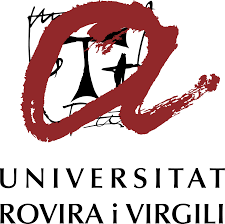Descripció del projecte
DESIGN OF A NEEDLE & BALL VALVE COMPATIBLE WITH HIGH PRESSURE HYDROGEN
Needle and Ball valves have been used during many years for hydrogen service at a pressure around 200 bar (bottle pressure). Needle valves are a good match for hydrogen: Zero leakage, very robust and can stand high pressure and temperatures.
In 2022 clean or green hydrogen has evolved into a promising market due to the current political climate and interest from the private sector. There is a chance that hydrogen will become the energy (carrier) of the future. This would mean new plants, fueling stations, and infrastructure and it will require valves to make it happen.
Universitat Rovira i Virgili is the coordinator of The Hydrogen Valley of Catalonia. This strategic initiative for the country is working to set up an ecosystem that turns on the value chain of hydrogen, an energy vector that is vital to achieve the objective of climate neutrality in parallel with increased business competitivity and improved welfare. Valves are a key element into the hydrogen infrastructure. The new hydrogen infrastructure will work at very high pressure and valves will be required to be designed and tested following new standards.
The valves are composed of different materials like stainless steel, polymers like POM, PEEK, PTFE, Elastomer, FFKM, FKM, NBR, Graphite, among others.
The first step is evaluate what are the new working conditions desired for the hydrogen valves. Then the characterization of the materials compatible with hydrogen and the service. Afterwards it needs to be designed according the production processes available in Redfluid. Then it needs to be created a test protocol according the legislation and directives of high pressure equipment and following the current industrial standards. And finally the valves needs to be tested following the set protocol achieving zero leak and zero fugitive emissions.
Being able to develop the new product range is strategic for the company because it entails the opportunity to enter new markets such as the new hydrogen infrastructure that will be developed in the following years.
The objective of this PHD is, first of all, to complete the theoretical basis of current hydrogen state of art, studying and analyzing the extreme working conditions that the materials can withstand.
Once the materials have been characterized, the valves will be manufactured, ensuring that the conditions of the sealing process continue to guarantee hermetic products. In addition, the test protocols have to be designed. When the correct materials have been found the valve design will need to be implemented to guarantee the manufacturing conditions, and finally tested with the mentioned protocol.



